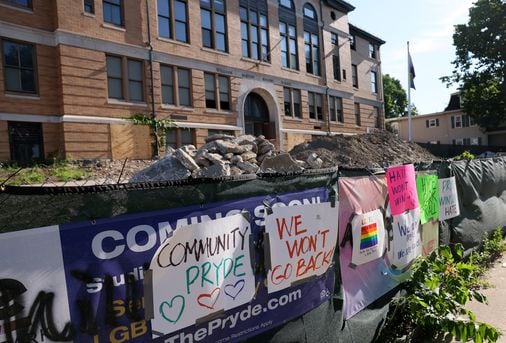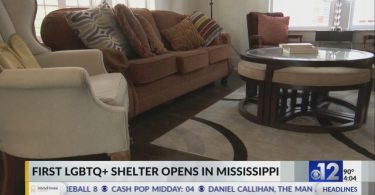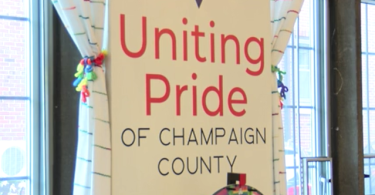Despite divisive US politics, there is positive momentum for LGBTQ+ senior housing and historic site preservation across the country.
In 2014, Sally Jewell, former secretary of the interior, announced the LGBT Heritage Initiative (now the LGBTQ Heritage Initiative) within the National Park Service to identify associated sites like the Stonewall Inn in Greenwich Village and nominate them as national historic landmarks. “From June 28 to July 3, 1969, LGBT patrons of the Stonewall Inn and members of the local community took the unusual action of fighting back during a routine police raid at the bar. “The events during that six-day period are seen as a key turning point and a catalyst for explosive growth in a gay rights movement,” the NYC LGBT Historic Sites Project wrote on its website. While the National Park Service initiative may have begun under the Obama administration, it continued under both Trump and Biden. As of June, there were 32 sites, but only one in New England: The James Merrill House in New London County, Conn.
And despite a Republican-led push in the US House of Representatives to limit federal funding to community projects — a move critics say targets LGBTQ+ groups — there are gains in the realm of developing both market-rate and affordable housing for LGBTQ+ senior citizens. There were six senior housing developments in the US welcoming to the LGBTQ+ population in 2015, according to Sage, an LGBTQ+ elders advocacy group. By last year, that number had increased to 17, and there are an additional 15 projects in various stages of development, including in Boston and New York City, as well as the states of North Carolina, Louisiana, and Texas.
“There’s a new project going up in Dallas. One opened up in Houston, and we think of Texas as being a pretty unsafe space for LGBTQ folks,” said Sydney Kopp-Richardson, director of the national LGBTQ+ elder housing initiative at Sage. “That’s one bit of hope in that there will be a lot of pushback, but people are still making it happen. The financing structures are still there, but also private philanthropy and other kinds of capital grants are still coming through, at least for now.”
But making progress on the housing front can feel like doing a labyrinth — blindfolded, as finding money for projects can be an arduous process of navigating political will, complicated language, and convincing investors of the viability of a development.
The Pryde, an affordable housing development for LGBTQ+ elders in Hyde Park, faced scrutiny and initially lost funding last year after the Republican-led House Appropriations Committee cut money reserved for several LGBTQ+ community centers in a spending bill. The $850,000 initially earmarked for The Pryde, which will feature 74 units and a 10,000-square-foot community center when it opens this year, was restored in March. The project also received a $1 million donation from The Harry and Jeanette Weinberg Foundation in December 2023 and millions in other donations.
Funding may have been restored, but the back-and-forth highlighted just how much housing projects like The Pryde rely on private donors to reach the finish line. Another hurdle emerged this year when House Republicans barred any nonprofit organizations from receiving federal funding through earmarks in appropriations bills.
“We have a moral responsibility to ensure every person is safely housed regardless of how they identify, who they love, or what stage in life they find themselves in,” Representative Ayanna Pressley, Democrat of Massachusetts, said in a statement to the Globe. ”That’s why, despite Republicans’ cruelty and homophobia, I was proud to team up with Senators [Elizabeth] Warren and [Edward] Markey to deliver crucial federal resources for The Pryde, an LGBTQ-focused affordable housing development in Hyde Park. With the cost of housing skyrocketing and Republicans seeking to cut off funding avenues for constituencies they show their contempt for time and time again, we must use every tool available, at all levels of government, to help our most vulnerable access affordable and safe housing — and that includes for our elders and LGBTQ+ siblings. Democrats getting the gavel back in Congress is a great place for us to start.”
The loss of earmarks were especially dangerous for small projects, housing advocates said.
“The big hammer that the Republicans in Congress have wielded now to take all earmarks out of out of [The US Department of Housing and Urban Development] funding is a real problem because that’s where capital funds were coming to smaller projects like ours,” said Gretchen Van Ness, executive director of LGBTQ Senior Housing Inc., a nonprofit group partnering with developer Pennrose on The Pryde.
Stakeholders and advocates emphasize that projects like The Pryde are necessary because the LGBTQ+ elderly population is more likely to face social isolation and less likely to have family to care for them as their heterosexual peers. But from a real estate perspective, these projects are largely just like any other affordable or market-rate housing development — just with more LGBTQ+-friendly services and amenities, including Portraits of Pride, a photography project that presents large-scale portraits of LGBTQ leaders through curated exhibitions and special installations.
“When you come at it from a real estate perspective, it’s not different in that sense. It’s bricks and mortar. It’s senior housing,” added Charlie Adams, regional vice president at Pennrose. “What we found is that people really embrace it, and there’s a real desire from a capital perspective to support it with the general programs that exist.”
The numbers show there’s demand for more LGBTQ+ senior housing.
There were more than 2.4 million LGBTQ+ adults over 50 in the United States in 2022, and that figure is expected to double by 2030, according to an AARP report. When the Town Hall Apartments, an LGBTQ-friendly affordable senior housing development in Chicago, opened in 2014, there were 430 applications for the center’s 79 units, according to an NYU/Deutsche Bank USA Real Estate Pride Council Roundtable presentation from earlier this year.
It’s a marked change for the former building, once the site of gay discrimination by police. “When I was young, gay men were arrested and spent weekends here,” Don Bell, a historian and gay activist, told CBS News on June 14 . “And then [they] appeared in queer lists in public, in newspapers, destroying their personal and professional lives.”
Loren Ostrow, the president and CEO of Living Out Palm Springs, an LGBTQ+ senior living development, raised equity from friends and family to develop that 122-unit project in Southern California. Living Out Palm Springs opened at the end of 2023 and is expected to fully lease by the end of this year.
The upscale development includes an array of amenities, from a massage studio and salon to a private screening room. Ostrow did much of his financial pitching for Living Out from a shared workspace in Provincetown while living on the Outer Cape. But he recognizes the friends-and-family route can go only so far from an equity funding perspective (he relied on local banks to handle the debt side).
“It’s clear to me there’s a market,” Ostrow said. “When I get to stabilization, then I think people will be more comfortable that this is a reality,” Ostrow added.
All those interviewed for this story emphasized that education is needed to get more LGBTQ+ housing developed. Completing projects proves there’s a market for more and makes it easier to secure financing, both for affordable and market-rate LGBTQ+ housing.
“The ‘mainstream housing world’ is catching on and seeing the success of these projects, and I think that’s one really exciting piece of it,” Kopp-Richardson said. “There’s a lot of hope and momentum for different models of housing that might not be as scalable as the larger projects but are scalable on a smaller and deeply impactful kind of community level.”
Send comments to [email protected]. Subscribe to the Globe’s free real estate newsletter — our weekly digest on buying, selling, and design — at Boston.com/address-newsletter. Follow us on X @globehomes.
Send comments to [email protected]. Subscribe to our newsletter on Boston.com/realestate and follow Address @globehomes.







